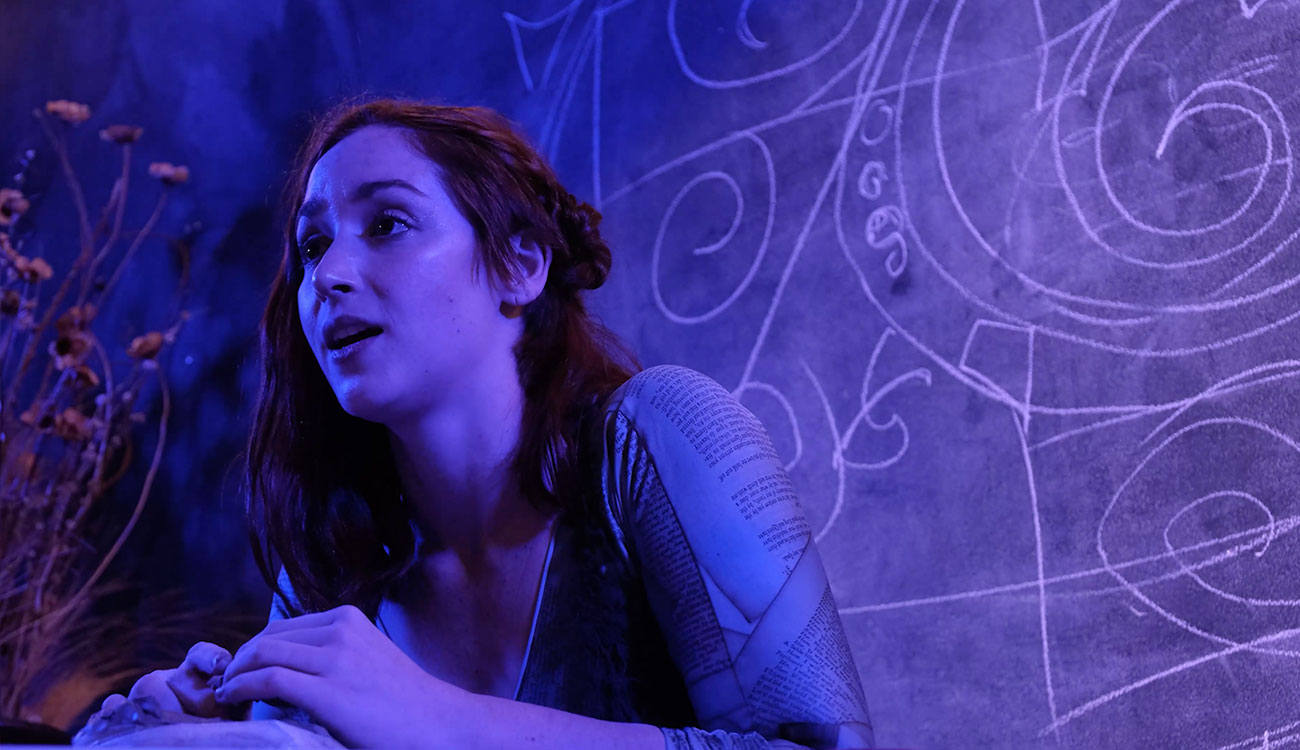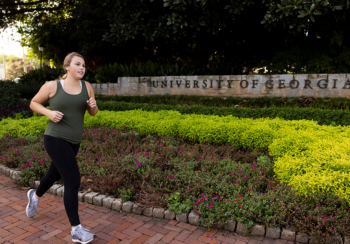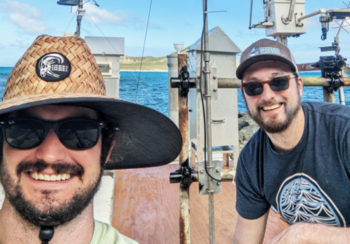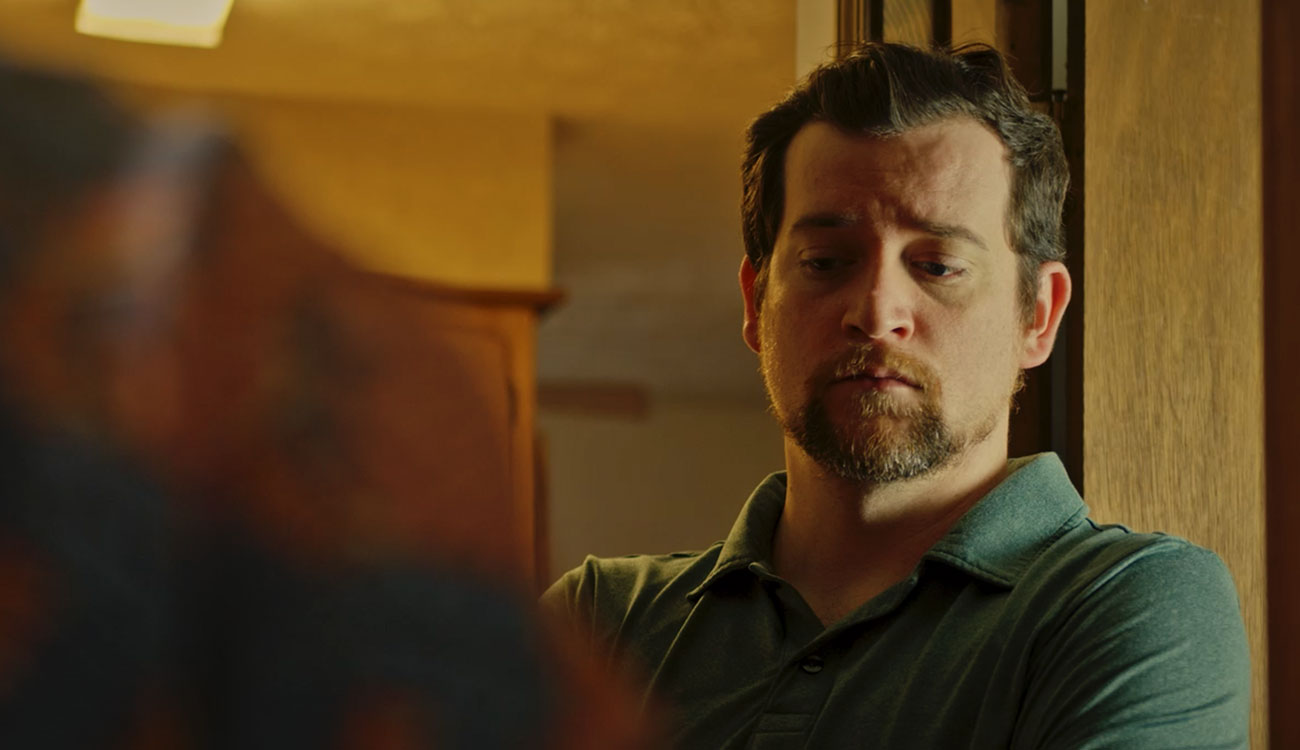
In answering these questions, a number of unprecedented issues arose.
One of the first problems Saltz encountered was securing permission to perform selected plays. To produce a published work of theater, one must acquire the rights to perform the show from a theatrical publishing company.
“There was a lot of legal negotiation,” said Saltz, professor in the Franklin College of Arts and Sciences. “Usually, you get rights to do a live performance, and one of the conditions is that it can’t be recorded.”
Theatrical rights companies also traditionally base their pricing and contracts on the number of performances and expected tickets sold. Online, these numbers can be difficult to predict. To keep things as similar to traditional theater as possible, many companies required that performances stream at a certain time each night for a limited number of audience members.
To accommodate this, the department partnered with IBM and AT&T to create an online streaming and ticketing platform. “They created this whole elaborate thing for us,” Saltz said.
The platform allowed a predetermined number of audience members to reserve tickets in advance. Then, at the scheduled show time, viewers could log in and stream the show.
After determining what plays could be produced and how they would be streamed, faculty faced another, steeper concern: COVID-19 safety. Dave Kreutzer, academic professional in media technology, oversaw the production of all 11 shows produced by the department, coordinating crews and equipment to adhere to university and national standards.
“Gear that went into performers’ homes was quarantined for three days between uses,” Kreutzer said. “Crew always wore masks and maintained social distancing, and for anything shot on campus, all crew had to have a COVID test less than a week prior to shooting.”
To simplify the process, the department assembled digital production kits that could be passed from set to set, with quarantine time in between. For each production, a new crew was trained in using the equipment and following the safety procedures. Some shows didn’t use crews at all, instead asking actors to set up their own equipment.
Several graduate students assisted in technology training and coordination. Even with the extra help, it was a challenging process, made all the more difficult by mandatory quarantine periods.
“In three different cases students came down with COVID while they had the film equipment,” Saltz said. “That meant the whole kit was out of commission for a week.”
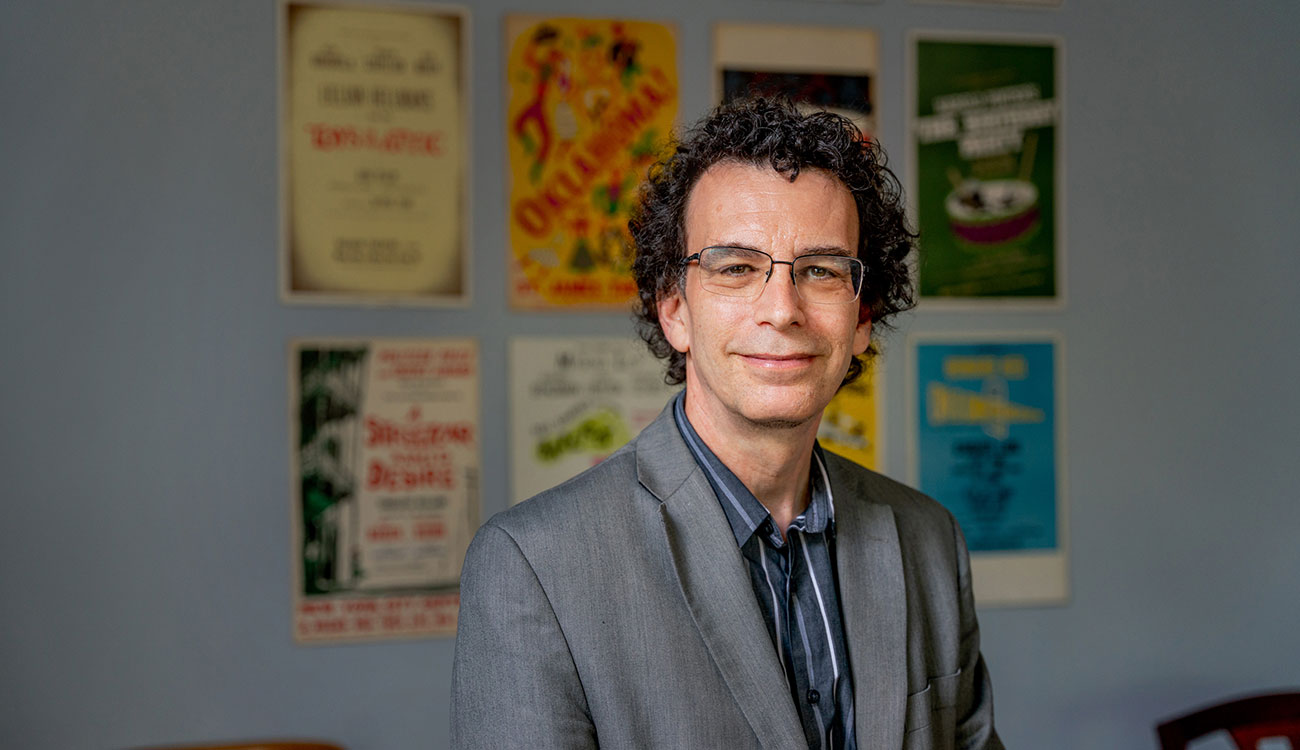
Devising digital theater
For every roadblock the pandemic presented, UGA Theatre found a detour offering new opportunities.
For the 2020 Spotlight on the Arts festival, the department tapped Freda Scott Giles to direct a large-scale virtual production addressing the most pressing sociopolitical issues of the year.
“Frustration with the system and frustration with racism seemed to be coming to a head, and so we were in a time when people were just saying, ‘Enough,’” said Giles, professor emerita. “We were also in a time when people couldn’t be comfortable with each other because we had this deadly disease that we were trying to cope with.”
Originally, Giles wanted to address these subjects with a published play, but the department was unable to secure streaming rights. Shifting gears, she decided to create an entirely new work born from collaboration and improvisation between a director, writers, actors and literary advisers.
Giles and her collaborators combed newspapers, magazines and social media sites for quotes and stories to highlight the experiences of those on the front lines of police-involved violence and the pandemic. The actors were also given the opportunity to provide input throughout the process, from initial conversations with Giles to cast Zoom discussions. Lamar Dodd Interdisciplinary Fellow Angela Hall compiled these clippings and ideas and transformed them into “Breathe,” a reverent, thought-provoking study of how we respond to society’s greatest anxieties.
The eight cast members rehearsed the show over Zoom, then moved into the Fine Arts Theatre to record their performances individually. They went to great lengths to protect each other; when COVID-19 test results didn’t come back in time, the crew rearranged the entire schedule.
After months of writing, rehearsing, recording and meticulous editing, “Breathe” premiered on Nov. 5, 2020. Although the show probed deep societal and individual traumas, Giles insisted that it end on a hopeful note, emphasizing collective healing.
“Let my land be a land where liberty is crowned with no false patriotic wreath, but opportunity is real, and life is free,” Ph.D. student Nikki Skies recites in the final movement. “Equality is in the air we breathe.”
Her castmates join her in an intercut poem, highlighting their fears, reservations and dreams for the country before a green-screened background of a picturesque painted landscape. Though they were filmed individually, through the combined forces of devised theater and dramatic media, the cast offers a powerful message of unity.
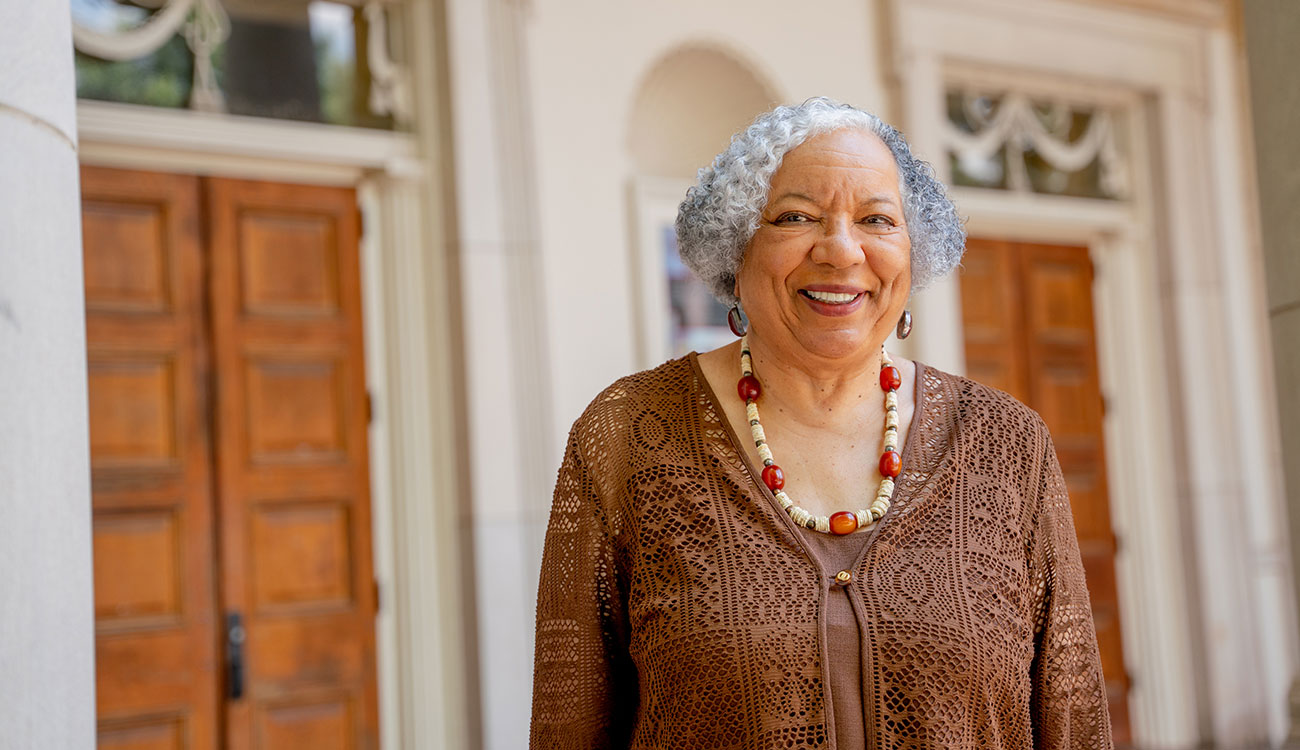
Experiments in media
“Breathe” was not the only UGA Theatre production that turned pandemic-related limitations into an opportunity for artistic innovation.
All nine of the department’s Master of Fine Arts in acting candidates completed their theses this year. While previous MFA cohorts starred in traditional live theater, the 2021 class was tasked with creating individual, virtual performances. Some chose to work with published plays written for just one or two actors, while others penned their own scripts, offering personal and universal revelations with humor and heart.
One such MFA candidate, T. Lynn Mikeska, found that the pandemic offered an exciting opportunity to experiment. “What I’ve really been focusing on is what we can do that’s new,” she said. “We have this lovely pause where we’ve been afforded the chance to look into different mediums, really redefine what constitutes theater in some ways, and explore different things.”
Sheltering in place, Mikeska created two pieces that would stream as a double feature, fittingly named “Together/Separate.” The first play, “MAD,” took a new perspective on the Greek goddess Medea, and the second, “Putting the ‘I’ in Me,” explored many of her personal musings through the character of Sadie Dunwick, an eccentric master class teacher.
In “Putting the ‘I’ in Me,” Mikeska drew upon acting theory, puppetry, dramatic media, literature and even astrophysics to create her performance. “To me, this is all research,” she said. “You’re putting these variables together in different ways, then you’re looking at the result of that. It’s hypothesis, experiment.”
One of the variables Mikeska tested extensively was puppetry. She spent the summer building and designing puppets. Her favorite, named Julius Avery, is a deceivingly simple foam figure, but “he articulates just like a human being,” she said.
To utilize the puppet’s wide range of motion, Mikeska had to find a way to film her performance so that it would look like a single take after editing, because she could not perform as Sadie and fully manipulate the puppet at the same time. To achieve this, she collaborated with a team of MFA media students—Paul Markert, who served as lead media designer, Taryn Spires and Meg Grey—who used green-screen technology to create intricate animations that interacted with Mikeska, who was edited out of shots with the puppet.
“I feel like, as a digital theater piece, it was more successful because of these ‘filmatic’ elements,” she said.
Other MFA actors also incorporated filmmaking techniques. Robyn Accetta utilized a green screen in her rendition of Samuel Beckett’s “Happy Days,” and Daja M. Rice presented a cinematic interpretation of Katori Hall’s “The Mountaintop.”
Though this blurring of the line between theater and film has been facilitated by the pandemic, it is hardly a new concept to UGA theater scholars.
“We have been at the forefront of exploring digital performance since the ’90s,” said Saltz, who also serves as executive director for UGA’s Ideas for Creative Exploration, an initiative that centers on the interaction between digital media and live performance. “If you look at a lot of the histories of digital performance, UGA Theatre productions are in the books.”
In addition to its robust history in the field of digital theater, UGA also offers MFAs in both dramatic media and design, two specialties that helped to smooth the transition to a virtual season. An MFA dramatic media student was assigned as media coordinator for each production, and faculty and students contributed editing and other key media skills to several productions, including “Breathe,” which utilized the talents of Kreutzer as lead editor plus six student media artists.
Though he recognizes that many people—both in the audience and in the cast and crew—will be tired of virtual theater for a while, Saltz hopes UGA Theatre will continue to lead the way in theatrical innovation, incorporating digital media as a complement to traditional live theater. “This is a creative opportunity that we want to keep exploring,” he said.
Epilogue
Though appreciative of how theater has persisted over the pandemic, most members of the department are anxious to see live theater return.
“My biggest hope is that live theater will come back soon, and that people will be able to have the experience of being in a show as it is unfolding, live,” Giles said. “I don’t want ‘post-actor.’ I don’t want ‘post-performance.’”
Luckily, at UGA, the return to live productions has already begun. MFA candidate Brooke McCarthy performed her one-woman thesis show, “How to Be an Ethical Slut,” about a young woman’s experiences with polyamory, for a small, in-person crowd in November 2020. By May 2021, the student organization Next Act was able to produce “Broadway Backwards,” an in-person musical theater cabaret starring 12 undergraduates at an outdoor venue. And, though the details of the upcoming season have not yet been announced, department leaders plan a return to live, full-capacity, in-person theater in the fall.
As more people are vaccinated and the pandemic ebbs, these plans will become fully realized productions, and UGA Theatre will take to the stage once more. Though many eagerly await their first opportunity to sit in a theater again, they recognize this is not a year to be forgotten. The department’s students, faculty and staff have demonstrated resourcefulness and resolve and gained newfound perspectives that will drive theatrical innovation for years to come.
“I’ve heard since I was in my undergrad [years] that theater is a dying art,” Mikeska reflected. “It’s going to be the tools and perspectives gained through this period, I really believe, that breathe new life into the art form and allows it not just to survive but to grow.”



